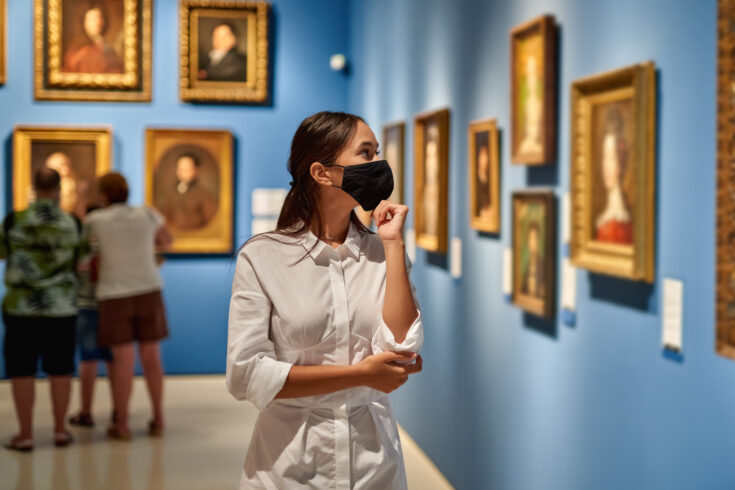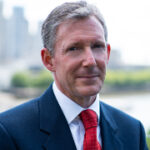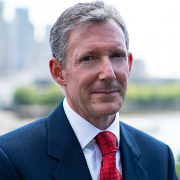It is a pleasure to be able to participate in this panel on ‘Waiting for the great leap forward’, what could the post-COVID museum look like? My title compares two versions of a popular slogan, often used in connection with the levelling up agenda.
Implicit in my alternatives between building back or building forward is the suggestion that there is a choice between re-establishing what we used to do or taking the agenda forwards.
In this respect, we can reframe the question to be about how levelling up respects and is driven by local need and informed aspiration, and not something which us done to our communities. And here, I would argue, museums have a critical role to play in forging and shaping local identity and mobilising communities.
Largest national funder of arts and humanities research
As a funder of arts and humanities, the Arts and Humanities Research Council (AHRC) has supported:
- exhibitions
- collections research
- research infrastructure capacity.
In my view this is a core part of our business. UK Research and Innovation (UKRI) is pledged to developing the research ecosystem and the galleries, libraries, archives, and museums (GLAM) sector is a key area of development.
Supporting the research and development capacity in galleries and museums, which facilitates new types of audience engagement, is central to AHRC’s work as a funder. It looks right across the spectrum from fundamental research to impact.
We have a close connection to the family of independent research organisations and effectively represent the GLAM sector within UKRI, a role we could I think perform better, and where I see real opportunity.
And we have a connection to the Museums Association through funding with UKRI public engagement. The new Digital Innovation and Engagement Fund in collaboration with UKRI and AHRC awarded £600,000 across the museums throughout the UK.
The aim is to help them kick-start, scale up and evaluate the innovations they so adeptly designed through the COVID-19 pandemic.
A second round of funding with Wellcome aims to develop a new approach to public engagement with research and innovation through museums, which it will do through grant funding and a capacity building programme.
What are we doing already?
UKRI has signed up to the technicians’ commitment, which is a clumsily worded title for a genuine and important attempt to create an expanded notion of the research ecosystem.
Collaborative PhDs
AHRC funds a significant number of collaborative PhDs and we see this as a fundamental part of our role. We may genuinely be a funder of last resort. The innovation and excitement of this research is inspirational.
An AHRC funded student is working closely with Historic Scotland to understand how British sign language users discuss, experience and value our built heritage.
Cultural institutions will benefit from these profound insights, enabling diverse communities to make sense of our historical past, and to play a part in contemporary heritage practice and interpretation.
Response mode research: supporting exhibitions and the underpinning research
Our support for the British Museum’s exhibition ‘Hokusai: Beyond the Great Wave’ in 2017 attracted thousands of visitors, who were keen to explore and further understand Katsushika Hokusai’s achievements.
It also led to a remarkable acquisition of 103 unpublished drawings by Hokusai, for an illustrated encyclopedia called ‘The Great Picture Book of Everything’. They were shown at the British Museum in a global first in 2021.
It is a brilliant example of research contributing to public outreach, then leading to a museum enhancing its collection, and then another exhibition with more research to come.
Infrastructure WCL
In 2019 to 2020, we offered £25 million of support for collections and archives to improve their research infrastructure.
A few weeks ago I saw the impact of just one project at Durham’s world class Oriental Museum, where we improved storage which then has already mobilized new research capacity.
Towards a national collection
We have just announced grants totalling £14 million to support the creation of a unified virtual national collection, dissolving barriers between the different collections of the UK’s:
- museums
- archives
- libraries
- galleries.
GLAM research
We have launched two projects to support research round the GLAM sector. One will focus on community-led participatory collections-based research exploring and sharing South Asian, African and African Caribbean Diaspora identities and histories in Britain today.
The other, explores a broad spectrum of inclusive approaches to community engagement in the GLAM sector, in Scotland and England.
Culture and heritage capital
Together with DCMS we are:
- driving forward the agenda of valuing the benefits provided by culture and heritage assets
- developing a framework that will underpin the work of the Culture and Heritage Capital programme.
This will demonstrate how culture and heritage assets create value to the public. This is a critical step towards changing the treasury green book to assign more value to our precious cultural and natural assets.
What are we thinking about doing?
So, we already have a strong roster of projects, but what’s next?
We are looking to build on the success of the IWM exhibition, with a competitive exhibition award to support research driven exhibitions.
We are aware of the problems of precarity and cliff edge for some of our PhDs and we don’t want their expertise to be lost. Can we find a postdoc scheme that keeps their expertise in the sector?
Creating a person centred offer rather than a project centred offer is a key challenge in a sector where career structures tend to be weak and not necessarily research-focused.
GLAM research hub, Policy and Evidence Centre (PEC)
Is there a role for a wider research hub or policy and evidence function which builds off and with the work of Arts Council England and the devolved nations?
Infrastructures for digital and heritage science
We are working to develop projects around both areas which will underpin the conservation and interoperability of collections across the UK. Towards a national collection is a great moment, but we need to sustain the momentum.
Place and mobilising assets
We have two projects, both around the mobilisation of assets and resources. One is looking hard at how to support local and regional authorities to use research to crowd in further resource.
The other is examining the role of natural and cultural resources in tackling health disparities. In both the role of the local museum is essential.
What should we be doing?
What is the role of a research council in this? I will test three hypotheses around:
- who should benefit from research around museums
- who is empowered
- what opportunities are created?
We should be looking less for research on museums and more research for and with museums
We are keen to move the museum to a place of co-creation, but profoundly aware of capacity issues.
How do we identify opportunity and create more consortia approaches to maximise access? How do we focus on the challenge of culture not object, that was posed by David Anderson from the National Museum of Wales?
I think one key is better co-ordination between funders.
We should be looking for research that empowers others not which leaves power in the hand of the researcher
Are we doing enough across the sector to demonstrate how integral collections are to communities?
We have lots of individual case studies, but the weight of evidence remains quite fragmented. This is a real challenge. We are up against highly co-ordinated and coherent industrial sectors and the language of mission.
The extraordinary experience of COVID-19 gives us a ground zero of comparison and insofar as one can speak of opportunity when one is faced with the massive personal and social scarring which has been laid bare.
We need to take this on by starting from empowerment and co-creation and not seeing this as a phenomenon which happened to others.
How then can we target our research to empower the sector with confidence in its centrality to community?
At least one way may be to think about our own mission or moon-shot. My first pitch here is around the twin themes of community and civic discourse and intergenerational justice. In every sense the museum is at the heart of these agenda.
Recognising the role of museums in improving discourse in communities and between generations is not to change the mission of museums. Instead, to recognise that the stories they tell build and rebuild us generation after generation. That is needed now as much as it has ever been, and that has a long tail.
We will be talking about the current crises of climate change and pandemic scarring for decades, and where else but in museums and archives?
We should be looking for research which creates long-term opportunity through skills and innovation
UKRI is about research and about innovation, but we need to recognise that innovation means different things in different places.
We are quite good at seeing a slightly different version of something we have done many times before as a legitimate reason for supporting an small and medium enterprise (SME) in the games industry.
We are less good at seeing the work of a local museum finding its route to working with schools or its public engagement activity as innovative knowledge exchange. But it often is, and it matters too.
My local museum is smaller than many SMEs. If it finds a new way to speak to its community, using existing ideas and toolkits, that is no less a form of innovation than I see frequently in the business sector.
And that means that we need a long-term sectoral approach that:
- speaks the language of skills, innovation and return on investment
- identifies the nature and significance of impact in different ways that are appropriate to what we do across the cultural sector.
The future
To close I hope the post-COVID museum sector is one which has confidence in the ways that research and development can benefit them, and that we can find better ways of communicating research across the sector.
I hope our role will be to help build a persuasive case for supporting this innovative sector, which as Melanie Keen put it in the panel, drives sustainable economic and socially beneficial:
- activity
- recuperation
- radical imaginary.
And I would be delighted to see this as the start of a dialogue to make that happen.
Top image: Credit: jenoche, Getty Images




